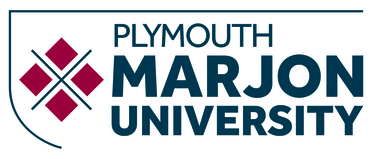Evaluation of Practice to Promote Physical Activity in Schools in a Unitary Authority in England
Defever, Emmanuel, Mwaanga, Oscar, Lee, Barbara and Jones, Michelle (2020) Evaluation of Practice to Promote Physical Activity in Schools in a Unitary Authority in England. Public Health, 182. pp. 155-160. ISSN 0033-3506
|
Text
Evaluation of Practice to Promote Physical Activity in Schools in a Unitary Authority in England.pdf - Accepted Version Available under License Creative Commons Attribution Non-commercial No Derivatives. Download (694kB) | Preview |
Abstract
Objectives: To explore what actually happens in relation to physical activity promotion in primary and junior schools within one unitary authority and to relate this to Public Health England promising principles of practice to promote physical activity in schools. Study design: A qualitative approach was undertaken to explore practice in all primary and junior schools in the unitary authority of Southampton. Methods: All primary (n=36) and junior (n=8) schools in Southampton were involved in the study. Publicly available primary physical education and sport premium (PESP) funding reports (n=36) alongside a school survey (n=14) were collated. The collated qualitative data set was semantically coded and then a multi-layered approach including identification, reviewing, defining and naming meaningful and important themes were inductively developed. The inductively developed themes were then fitted in relation to PHE eight promising principles. Results: There was evidence of practice across all eight promising principles although this varied in depth and scale. There was one set of data that did not fit appropriately within the PHE eight promising principles and warranted its own category broadly termed ‘rewards to recognise physical activity’. There was widespread evidence of PESP funding providing increased provision, variety and quality of sport opportunities but limited evidence of physical activity practice or programmes targeting the least active. Two different approaches in relation to ensuring a skilled workforce materialised continuing professional development which reflected in impact statements linked to increased confidence to deliver and quality of physical education versus outsourcing to specialists with little impact cited other than offering specialist or diverse sports. Conclusions: The study demonstrated that the PHE eight promising principles of practice was a useful framework in relation to current practice, although a ninth promising principle of rewarding physically active behaviour should be considered. The two key themes that need to be addressed for the ambitions established in the new school sport and activity action plan to be deliverable, with PESP funding as a driver, are skilled workforce and development of a wider understanding of what physical activity is.
| Item Type: | Article |
|---|---|
| Keywords: | Primary PE and Sport Premium, Physical Activity, Sport, Children, Health |
| Depositing User: | Ms Raisa Burton |
| Date Deposited: | 08 Apr 2020 13:57 |
| Last Modified: | 19 Apr 2021 03:50 |
| URI: | https://marjon.repository.guildhe.ac.uk/id/eprint/17545 |
| Related URLs: |
https://www.sci ... 0652?via%3Dihub
(Publisher URL)
|
Actions (login required)
 |
Edit Item |

